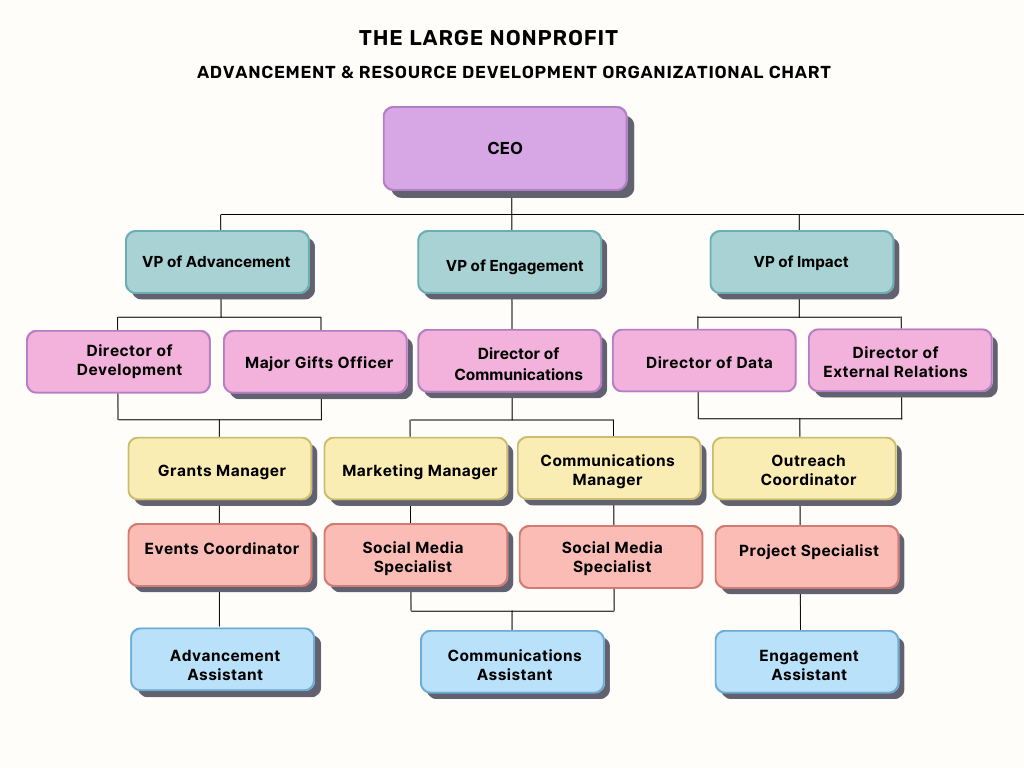When it comes to fundraising, small nonprofits face unique challenges that can make it tempting to mimic the strategies of larger organizations. However, it’s important to recognize that small nonprofits possess distinct advantages that make a different approach to fundraising more effective. Let’s explore why small nonprofits should avoid running their fundraising campaigns like large nonprofits and instead focus on leveraging their inherent strengths.
1. Tailored Strategies and Flexibility:
One of the key reasons why small nonprofits should avoid mimicking large organizations’ fundraising strategies is the issue of resources. Large nonprofits often have dedicated teams and substantial budgets (see image) to implement various fundraising initiatives. In contrast, small nonprofits typically have limited staff and financial resources. Consequently, replicating large organizations’ tactics may lead to frustration and disappointment for smaller groups.
Instead, small nonprofits should embrace their agility and the ability to tailor their fundraising strategies to their specific needs and goals. By focusing on their unique strengths and available resources, small nonprofits can develop creative, cost-effective approaches that resonate with their audience and maximize their impact.
2. Personal Relationships and Community Involvement:
One of the significant advantages of being a small nonprofit is the ability to build personal relationships with donors, volunteers, and the community at large. This aspect is often lost in large organizations, where individual connections can be challenging to foster due to scale. Small nonprofits can leverage these personal relationships to cultivate a loyal network of supporters who are passionate about their cause.
Rather than solely relying on impersonal mass marketing techniques, small nonprofits should invest time and effort into building strong connections with donors and volunteers. This personal touch can lead to more genuine and lasting support, creating belonging and commitment to the organization’s mission.
3. Grassroots Approach and Local Impact:
Small nonprofits often have a distinct advantage, their size allows them to be more nimble, adaptable, and responsive to the specific needs of the community they serve. This grassroots approach can foster a sense of ownership and involvement among supporters, which is harder to achieve for large organizations working on a broader scale.
By leveraging strengths associated with smaller organizations, focusing on local engagement, and addressing community-specific challenges, small nonprofits can attract donors who are passionate about making a difference in their immediate surroundings. Emphasizing the local impact not only helps build stronger relationships but also positions the organization as a trusted community resource.
While larger nonprofits may have more resources and reach, small nonprofits possess inherent advantages that make them uniquely positioned to run their fundraising campaigns differently. By tailoring strategies, focusing on personal relationships, and emphasizing local impact, small nonprofits can create more successful and meaningful fundraising initiatives.

